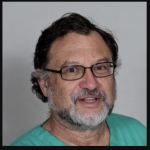Explaining a paradox of science, let nature bury the excess carbon, Power, and letting go – at least of our notes.
“The principle of indifference states that, without any evidence, all potential outcomes should be considered equally probable. For example, if there’s a 10-horse race then, without any additional information, one should assume that each horse has a 1-in-10 chance of winning. …[but] a paradox first described by the French mathematician Joseph Bertrand in 1889 can make starting from a position of true indifference impossible.”
Aeon brings us a short video that may help explain why “following” the science may be more complicated than we anticipate. It all comes down, to the mathematically challenged (the clear majority of us), to our descriptions. The unresolved probability paradox that goes to the heart of scientific objectivity
"Forty-nine million years ago, a small aquatic fern called Azolla wrested control of Earth’s climate. At the time, the landlocked Arctic Ocean developed a surface layer of freshwater, which allowed the ferns to grow unchecked in a wide-open environment. Billions of tons of plants died and sank to the bottom of the ocean, taking with them the carbon they had sucked from the air when they were alive.
The consequences were extreme. Geologic evidence indicates that atmospheric carbon dioxide levels plummeted more than 80 percent over 800,000 years, sharply ratcheting down Earth’s thermostat. Prior to the inferred “Azolla Event,” most of the globe was lush and tropical. Afterward, the Arctic cooled by nearly 40 degrees Fahrenheit, the poles froze, and our planet entered a lurching cycle of ice ages that continue to this day.
The Azolla Event was an environmental catastrophe for life in the Eocene epoch. Today, though, it is a source of inspiration.”
Can we use plants to bury CO2? More and more advanced technologies use the most advanced chemical processing in the world, that of bacteria and yeast, so why not consider plants as a CO2 solution? They have a better track record with it than us. From Nautil.us, How to Bury Carbon? Let Plants Do the Dirty Work
One of the background stories over Ukraine is the gas pipeline bringing much-needed gas to Germany. But we have a similar long-distance line bringing hydroelectric power to the Northeast. Here is a summary from Marginal Revolution, Who Has The Power?
“ ’Murder your darlings,’ advised Sir Arthur Quiller-Couch. But it hurts to throw out perfectly good prose. We hesitate, finger hovering over the delete button, reluctant to expunge the words we love. It’ll “break your egocentric little scribbler’s heart [to] kill your darlings,” warned Steven King in On Writing.
So we hoard. Try to remember it all with misplaced loss aversion, only to strain under the weight of a million open mental tabs and erode our ability to remember the important things.
We need to forget, but we first must feel safe forgetting.
That’s why notes and bookmark apps are so valuable to us.”
I admit it; I save lots and lots of notes and articles. It wasn’t until two years ago that I finally got rid of all of my notes from medical school. So this article resonated with me. From Reproof, Notes apps are where ideas go to die. And that’s good.

